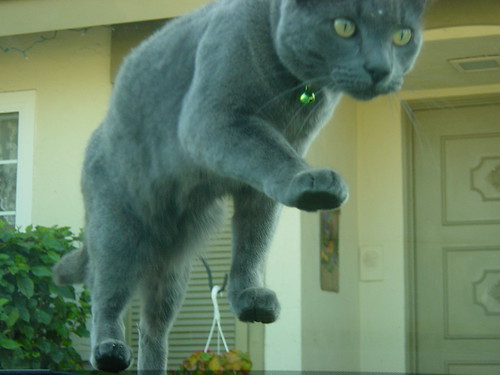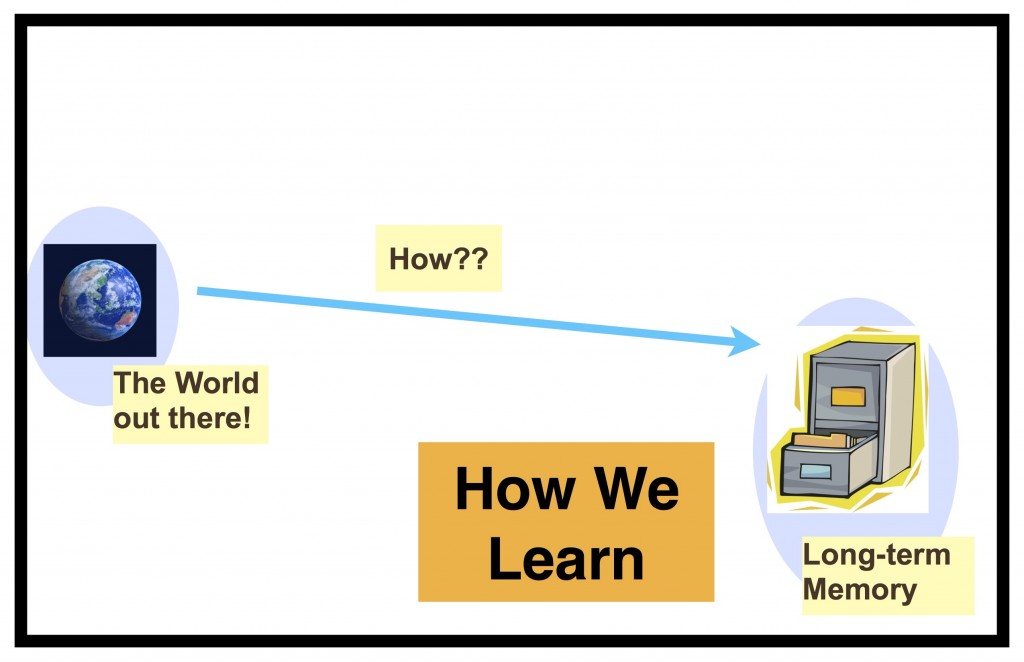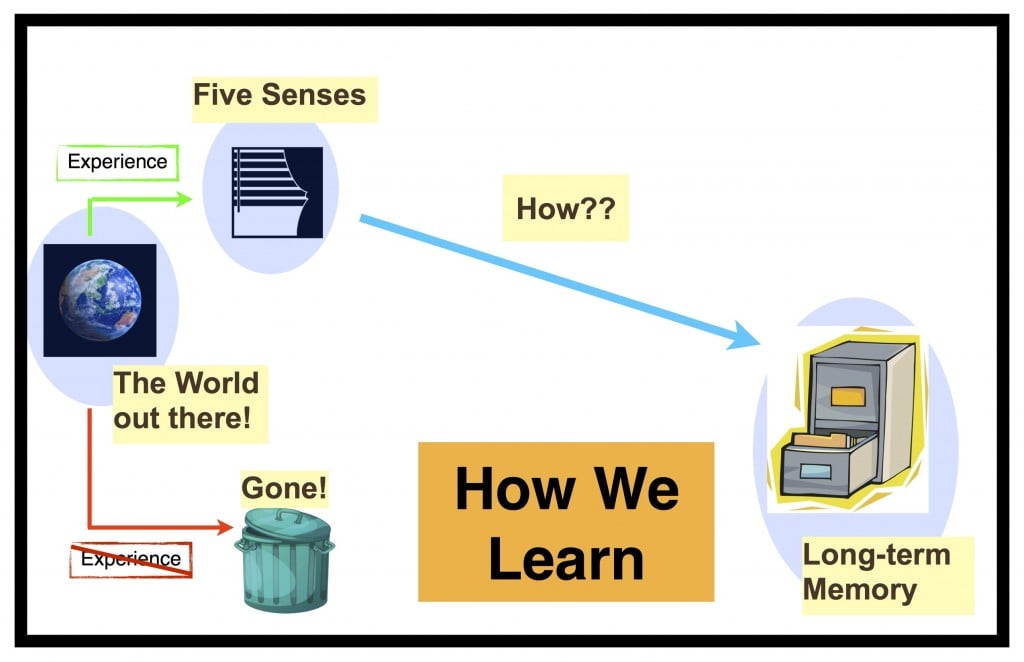
![]() Photo Credit: Martin LaBar via Compfight
Photo Credit: Martin LaBar via Compfight
Over the last couple of weeks I’ve been offering the children a look inside their learning brains. No, we haven’t actually lifted up anyone’s scalp to peer inside, but we have explored some of the things I learned about learning while reading Dan Willingham’s wonderful book, Why don’t students like school?
I promised them a look at how people learn so they could be more conscious of the kinds of habits that good learners possess.
First, we started off with this poster that I created (based on Willingham’s book.)

Our big question was this: How do I get all that new stuff out there, all the way inside my head so I can learn it well?
It turns out that curiosity didn’t kill the cat after all, but it does make us good learners. To even begin learning something we have to somehow experience it. The more we experience, the more chance we have to learn.

As the days went by we talked about how we could make sure we had more experiences so our “bank” of experiences was bigger. We generated a list of things we could do, or ways we could be, that would help us gather good experiences from which to learn:
- Develop “stick-to-it-tiveness” (persistence / perseverance.) If we stick with something, even though it is hard we might learn new things. Quitting something too early cuts off our experience, and only opens us up to experiences that are easy for us, which usually means we already know a lot about them in the first place. New stuff just is hard. There’s no way around it!
- Read a lot. We realized that readers can “experience” more of the world than non-readers because they are able to multiply their experiences by all the experiences they have through the books they read. They can learn about things they have never seen, or about things they have never experienced in real life.
- Travel. We can go new places with a mind that is open to the new-ness of that place. This could be going to some place as far away as China, or as close-by as the creek or Niagra Cave.
- Try new things. We can search out new things to try. Maybe there is a sport, or a book, or a game, a place, or a person that we would like to get to know better. By searching these out, we can grow our own brains, and become good learners.
- Build things. We can build things to help us learn how things work. Children talked about Lego-League, or building bridges, or “building” imaginative places around the house or at recess. These are all ways to explore how things work together to make something whole.
- Develop curiosity. A lot of this comes down to developing a curious and attentive mind. Curious people are good learners.
In the next few weeks, we’ll be talking more about the habits and characteristics we can develop to help ourselves become the best learners we can be. This is a nice start!
This is good info! Thanks for posting.
Yeah. Willingham’s book was pretty interesting. For a long time, I’ve been interested in how the brain works. His book is a look at how what we know about learning can be used by teachers. It’s a good read!
I have attended some lectures and read some books on the importance of early brain development – early childhood focus. I may have to read this one too. Sometimes it is hard to incorporate all of these things that help us learn. I had a colleague challenge us to try and learn something new every day using at least one of our senses. Some days I really struggled, because I don’t always have a very creative side.
It is a pretty good book, but I’m sometimes (well…er…most of the time!) pretty geeky about learning about learning. You might say it’s one of my real passions! So, the fact that I liked Willingham’s book may not be a good recommendation! 🙂